Recently I had some time to dive back into my library of shots. In particular, I was looking at images depicting snowy scenes for inspiration as it’s going to be winter soon.
As soon as I realised that there’s going to be quite a bit of snow, I opted to shoot black and white film for most pictures. I still had Kodak TMAX400 and TMAX100 in stock which I shot at stock speeds and pushed to ISO1600.
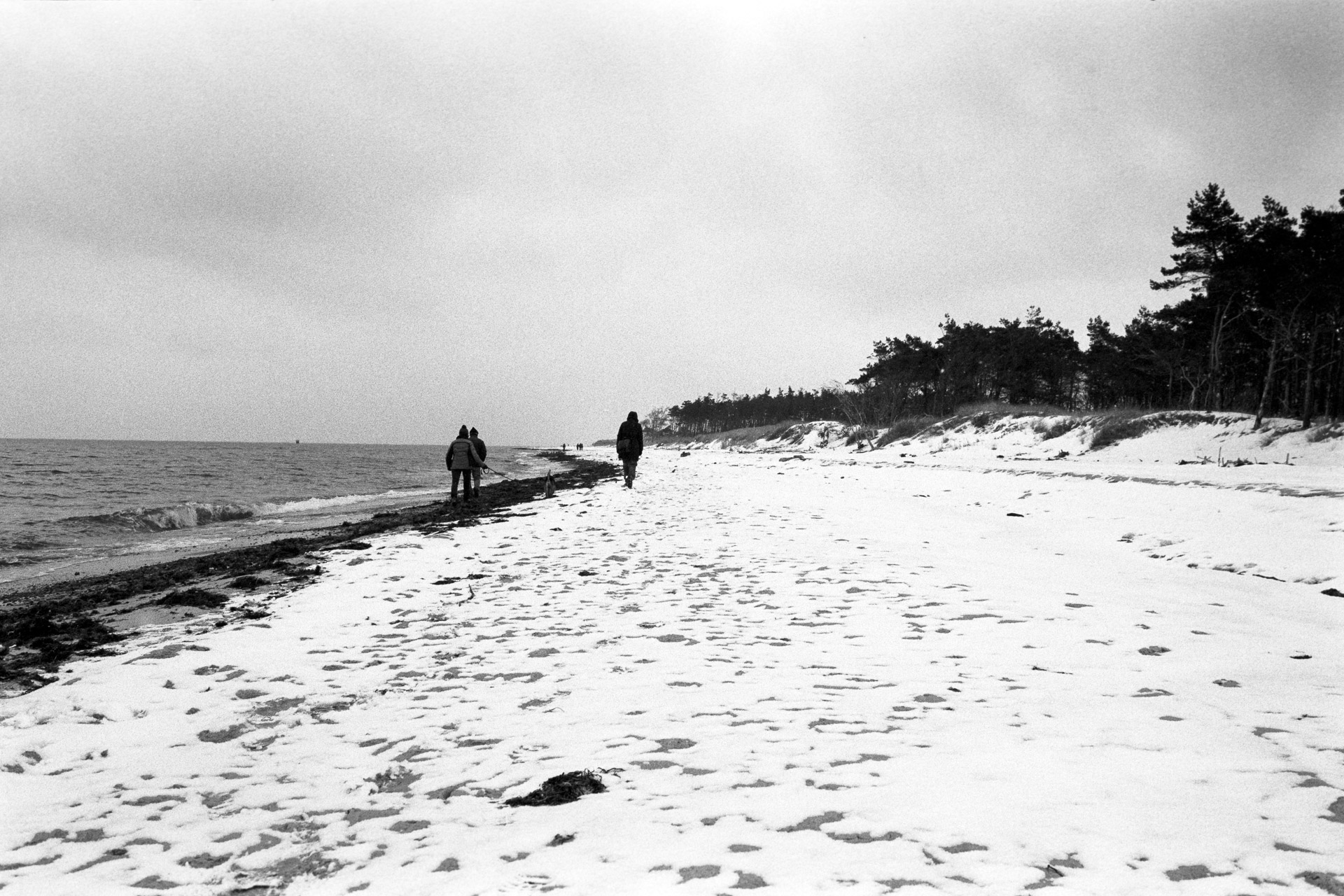
I often spend the Easter holiday with my family on the Darss, a peninsula in the Baltic Sea in eastern Germany. Usually there is no snow whatsoever at Easter, but 2013 was decidedly different.
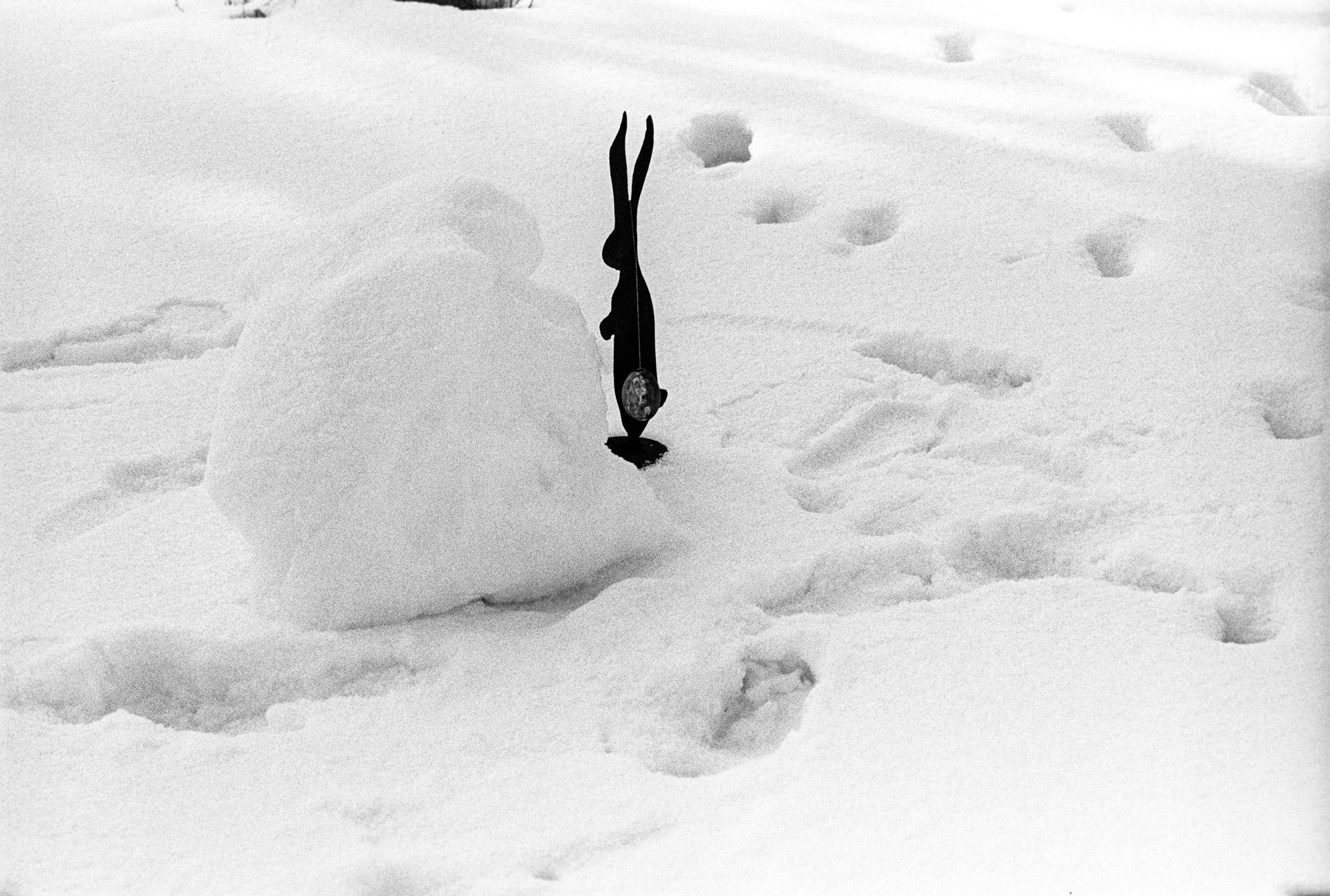
What makes the Darss special is its great diversity in landscapes. First, there is the “Weststrand”, which translates to western beach. The Weststrand is rough and windy with sometimes large waves, swell.
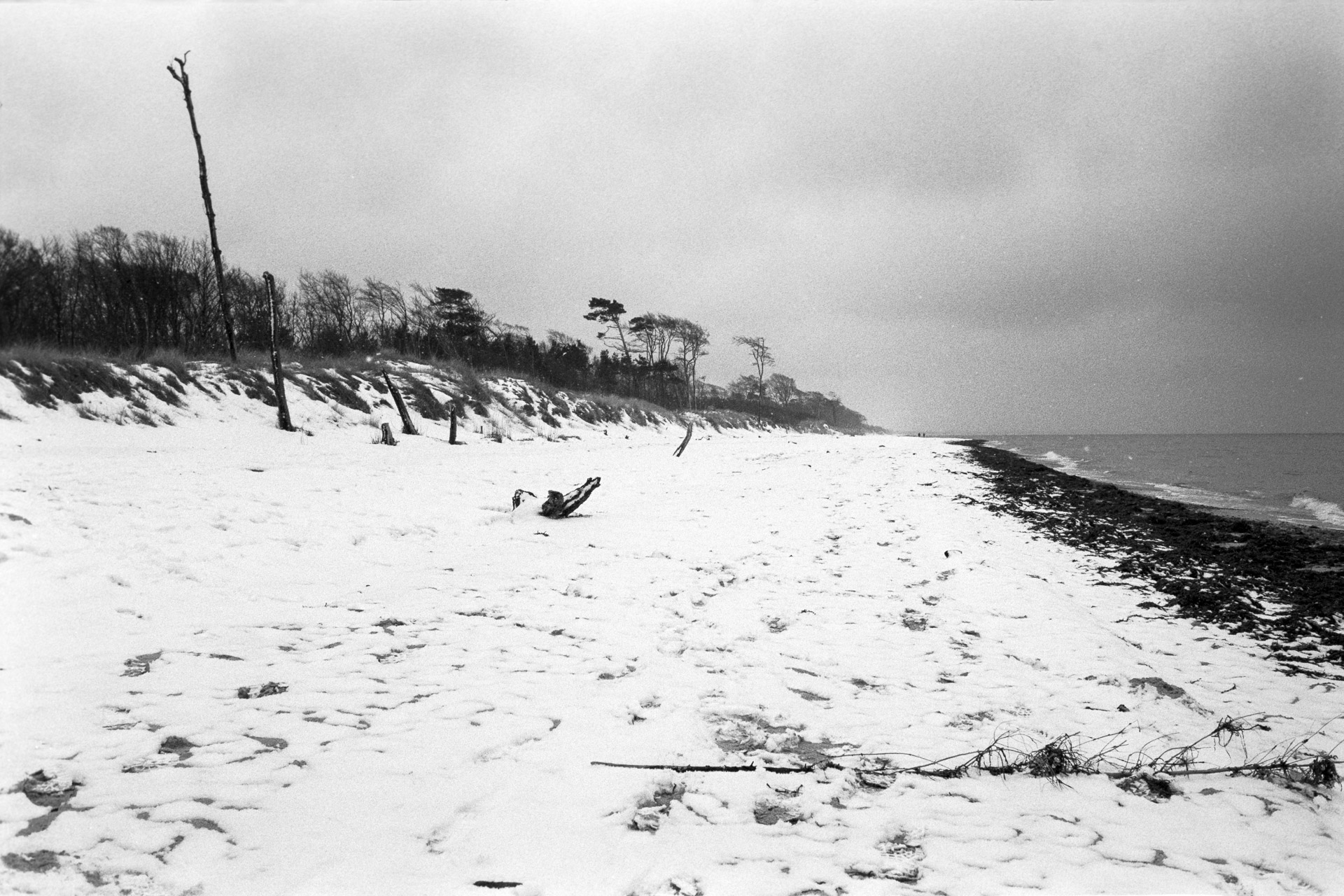
Every year, the sea robs parts of the beach and it continuously shrinks.
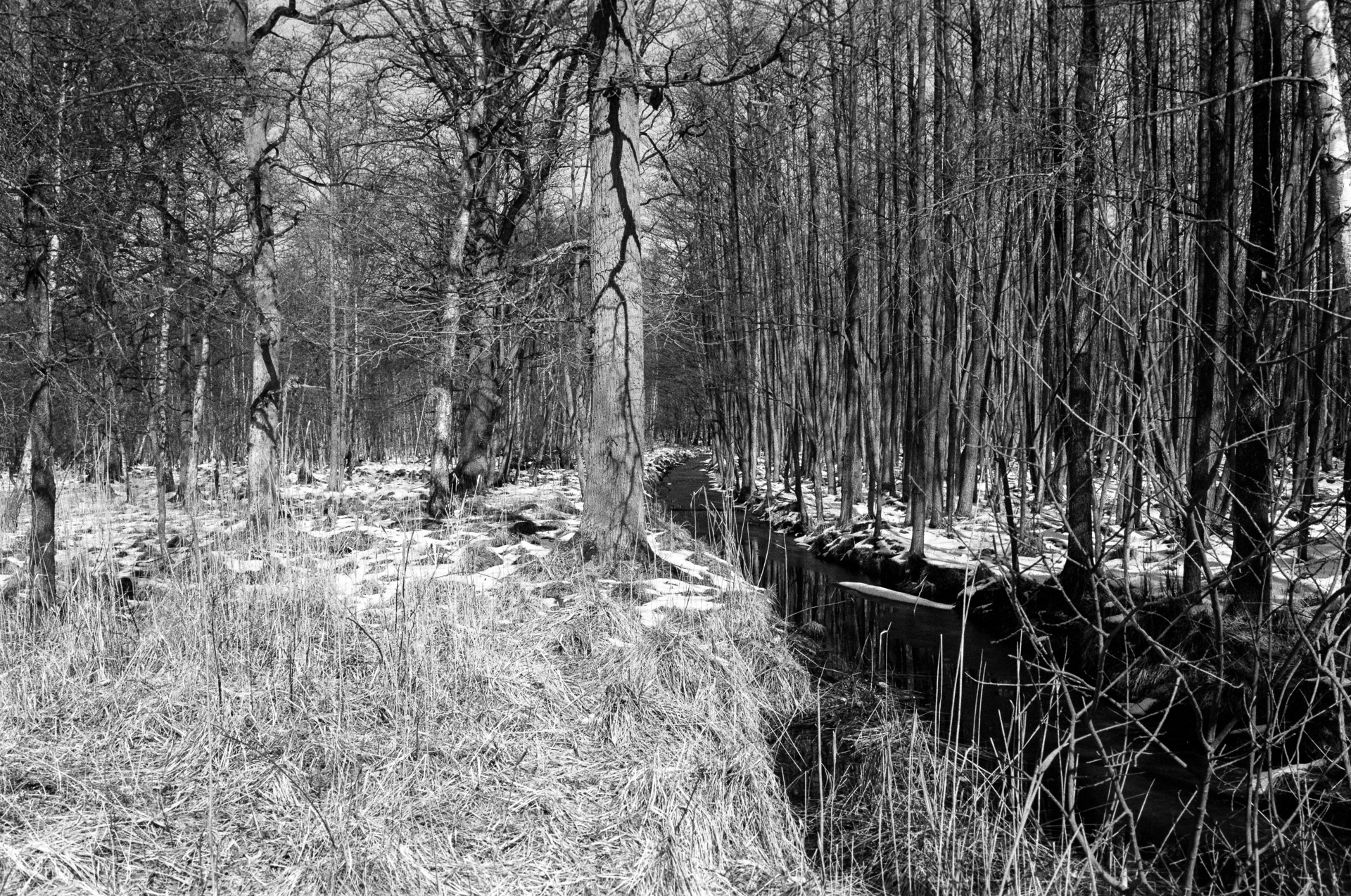
To get to the Weststrand, you have to walk through the “Darsser Urwald”, meaning the Darss jungle. It’s a very thick mixed forest of pine trees, alders, and oaks set on a carr.
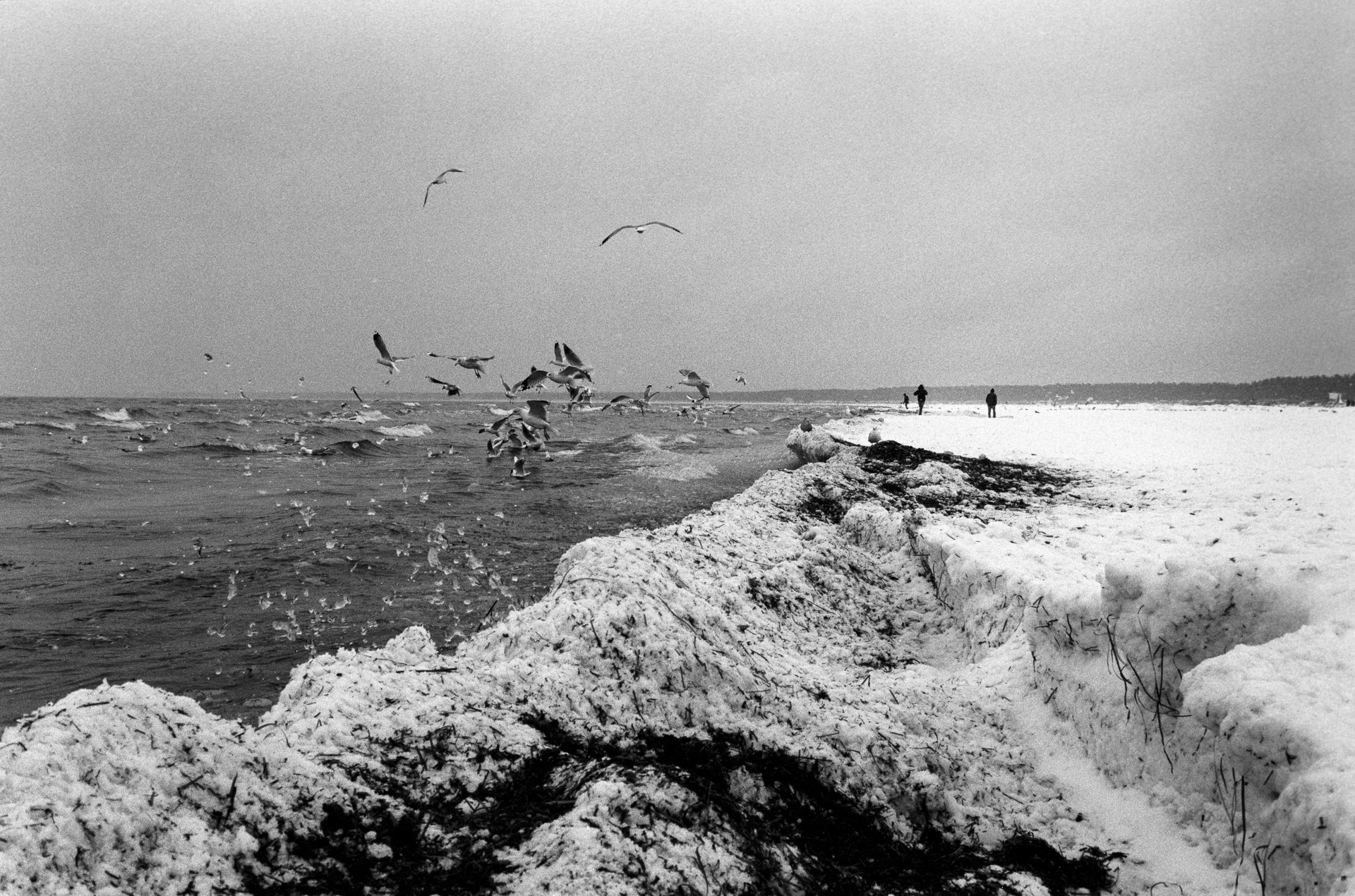
From the Urwald you can either go west, to the Weststrand, or north to the Nordstrand (northern beach). Its waters are very calm compared to the Weststrand. The beach grows every year, as the current carries most of the sand eroded from the Weststrand to the Nordstrand.
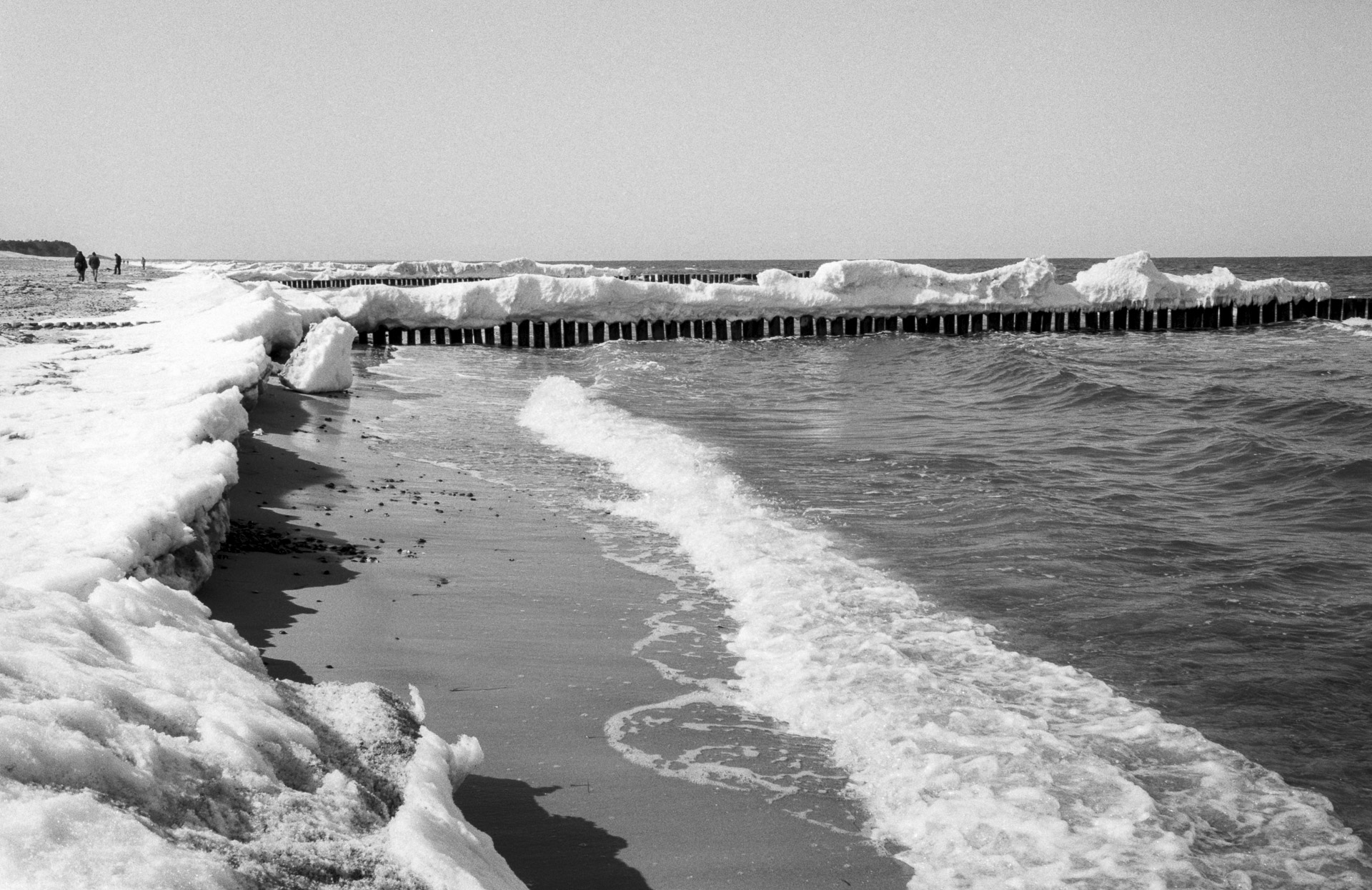
The Nordstrand on a more sunny day. Shot on TMAX100. 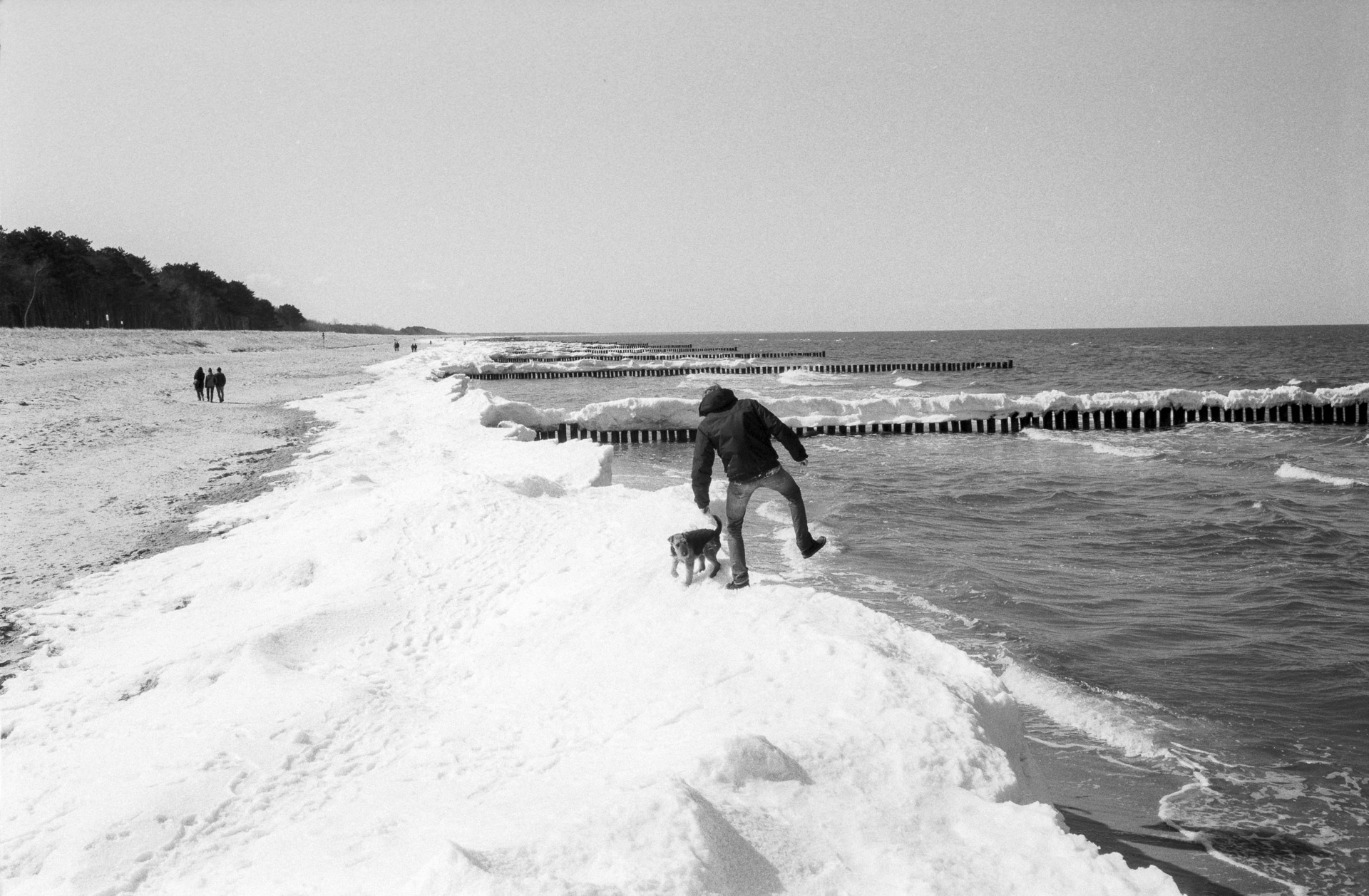
Playing in the snow, shot on TMAX100.
That Easter, the current carried across mostly ice instead of sand.
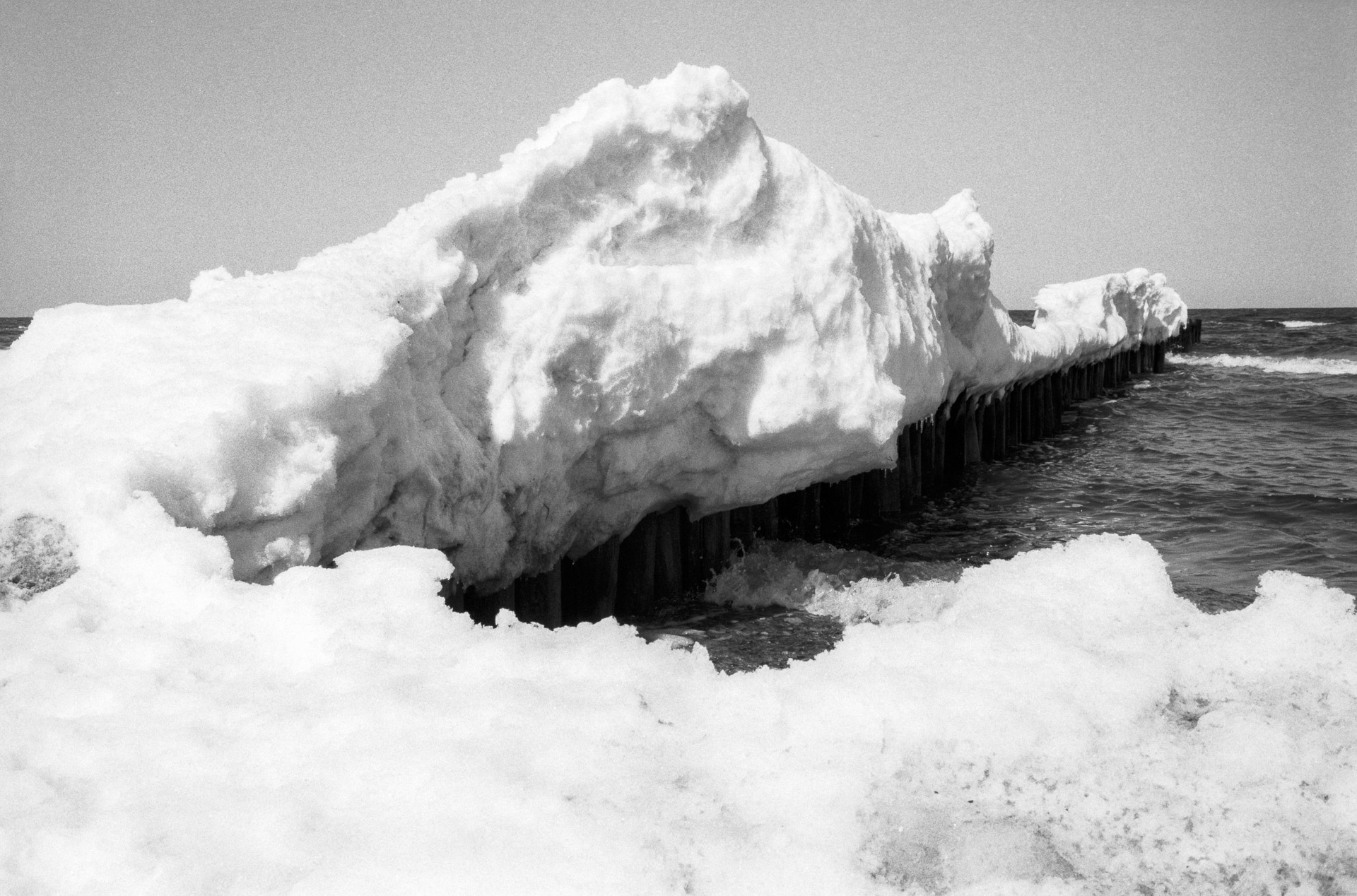
Ice and snow formations on the breakwater walls were decidedly impressive.
Finally, the Darss also offers fresh water inland waters, akin to sees, which connect to the Baltic Sea through small straits.
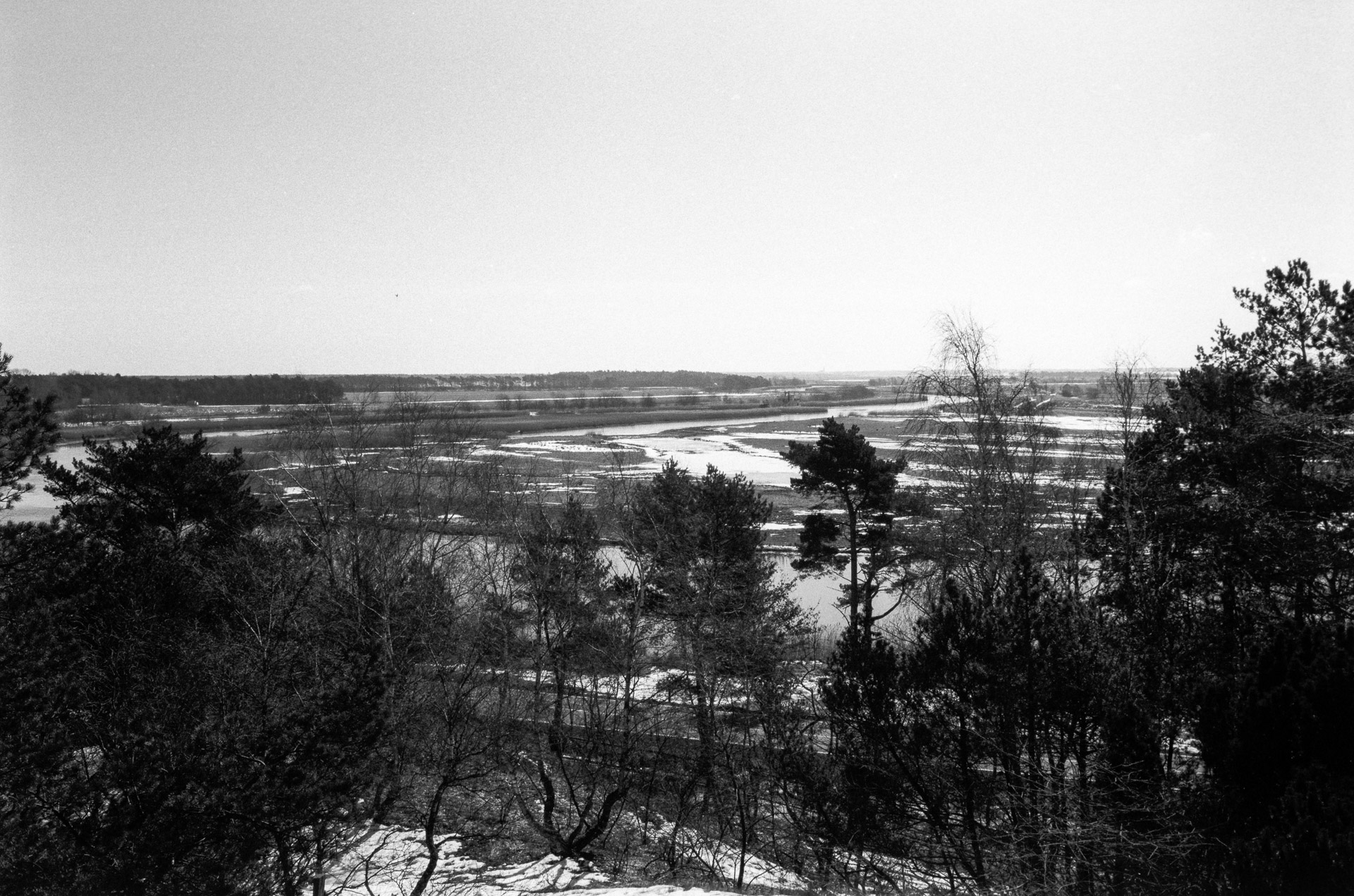
The inland waters are referred to as “Bodden” or “Boddengewässer”, which stems from the German word “Boden”, or ground. As you might’ve guessed, the Bodden is very shallow and similar to marsh in places.
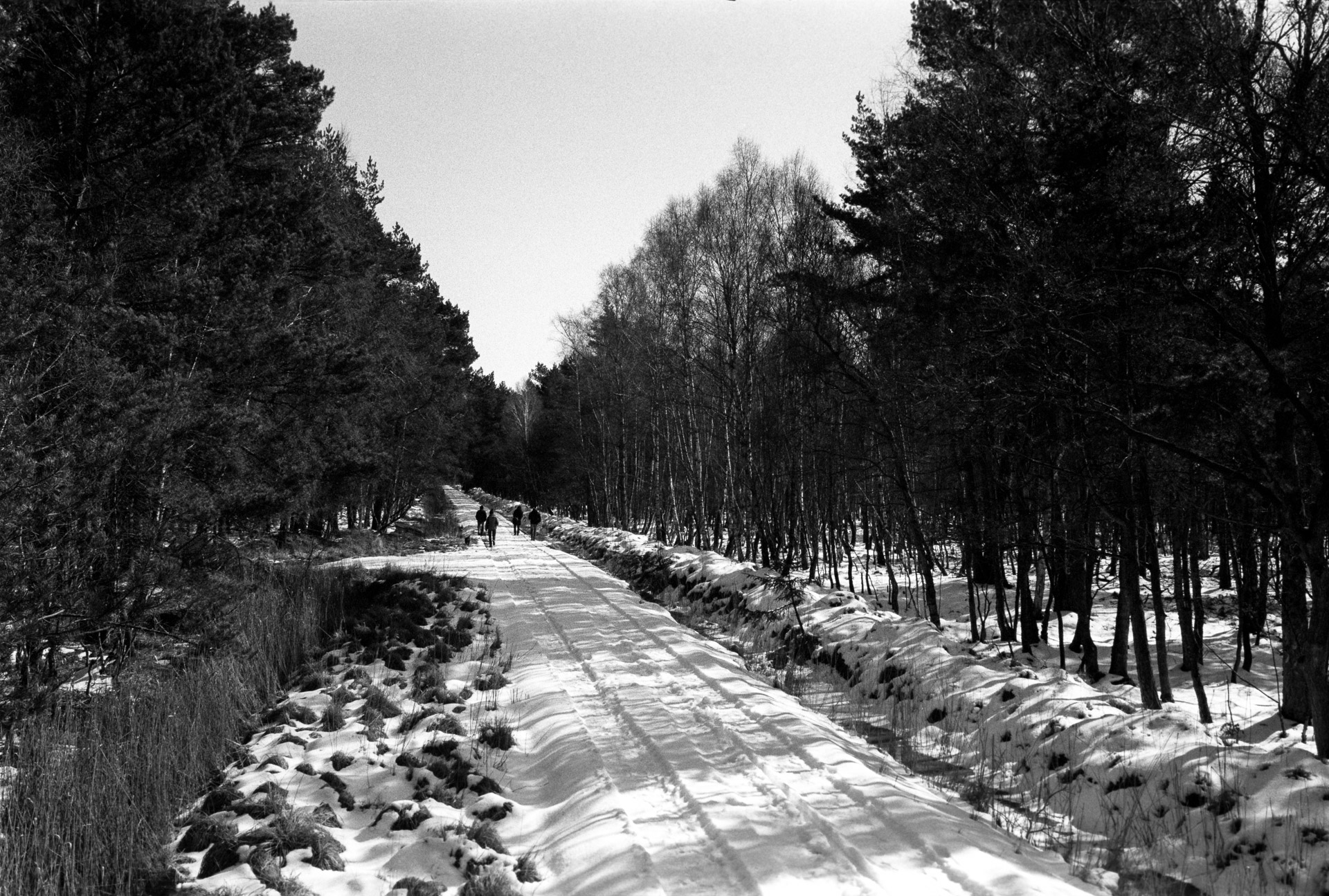
The city Prerow is one of the major cities on the peninsula. Originally a city defining the shipbuilding industry and fishery in the region, it transition to be a holiday destination.
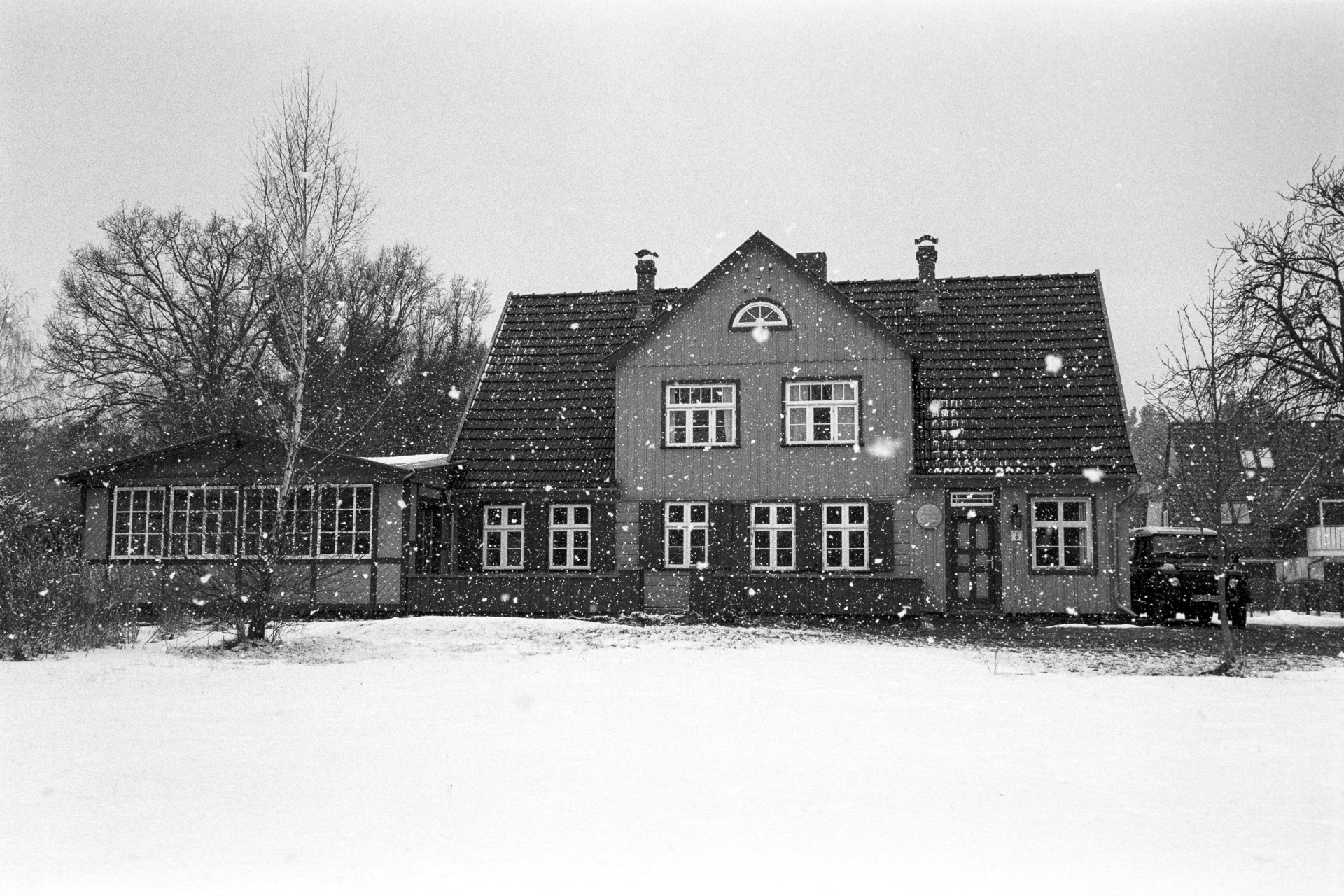
However, there are still many buildings around from past times. You can spot colourful wooden doors around the city.
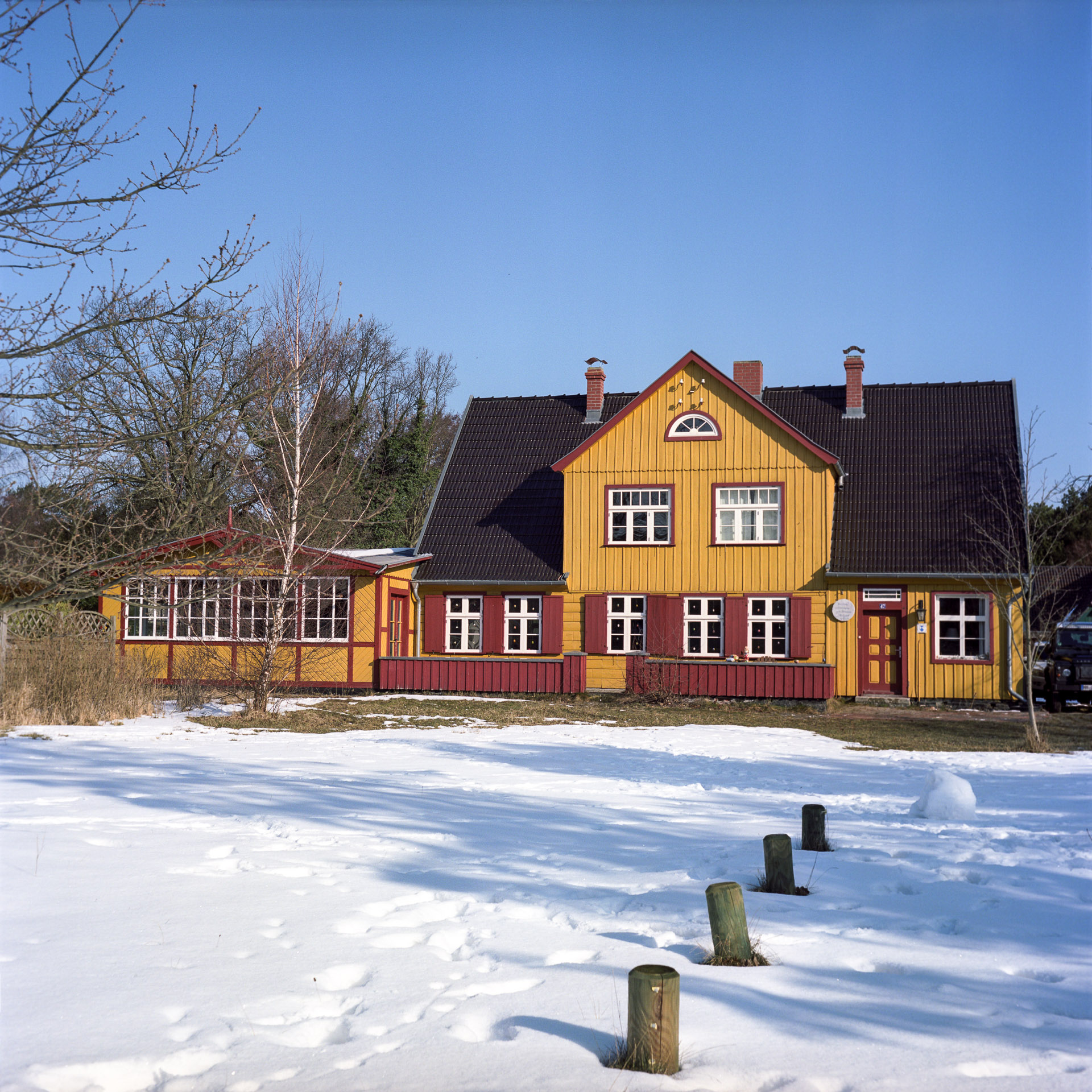
As the snowy weather came to an end, I opted to switch from black and white film to colour again. Therefore, I took the shot above with a Rolleiflex 6×6 camera and when scanned in high quality the setup produces stunning images.